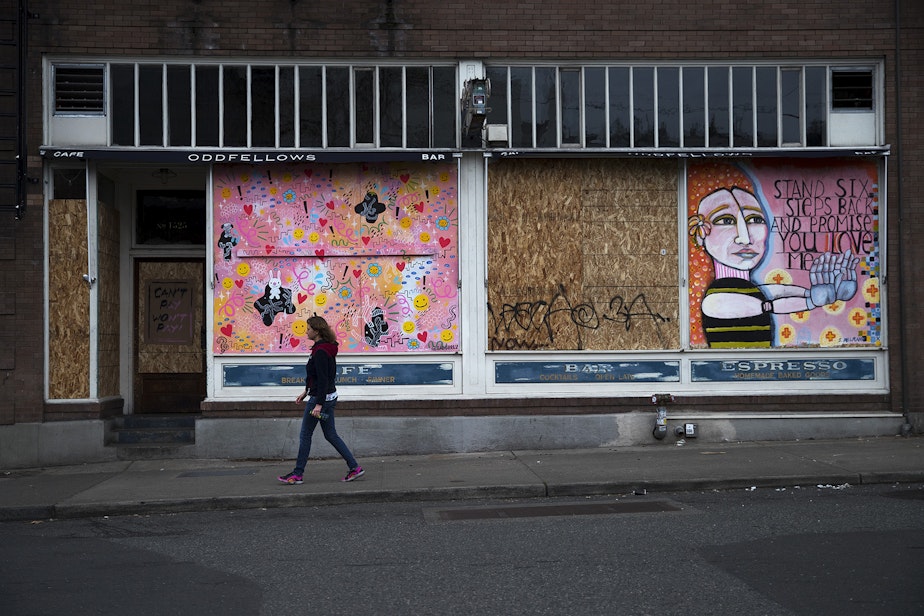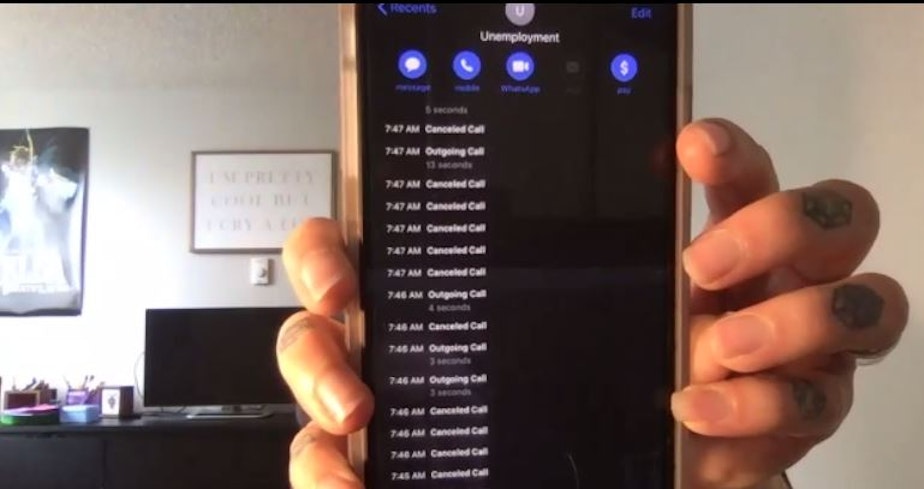Filed for unemployment in Washington state and have received zilch? You're not alone

Nearly 800,000 people in Washington state have filed for unemployment since early March. One in three of them have not received money, according to the state's employment security department.
To put 800,000 people in perspective, that’s the population of Seattle.
A total of 280,000 people have not been paid. That’s the cities of Tacoma and Marysville, put together.
Lydia Glassley, an aesthetician from Bellevue, called the unemployment line nonstop before getting through.
Alexis Pennington, a hotel worker whose hours declined until they disappeared, has been told by the unemployment online system that in principle she qualifies for federal relief. But so far, never in practice. And she can't figure out why.
Andrew Ortiz, an engineer at a luxury headphone company who was sidelined by the pandemic, is stuck because of a citizenship question. He got a letter in March, he said, "trying to find out if I whether or not I am citizen, which is strange to me because I was born here.”
Sponsored
There are all kinds of reasons why people in Washington state are filing unemployment claims and not getting paid. One is that their claims get stuck in adjudication, which means a human being must review their application.
Before the pandemic, that could take 21 days. With the employment security department fielding 1.45 million claims last week, it is taking longer. Ortiz's problem, the citizenship question, is a sticking point for many people's applications, according to the state.
The state thinks that some applicants are misunderstanding it. And because state benefits are contingent on an individual proving they have the right to work in the US, a limited number of trained adjudicators now must now review each fouled-up application one by one.
Frustrated people have been pouring out their sorrows on social media, including Reddit, Facebook and Twitter. The employment security department has been meeting them there, providing information and tips.
“We are going to work night and day until everyone who is eligible gets those benefits and that relief that they so desperately need," said Suzi LeVine, head of Employment Security, in a video she posted on Twitter along with a 22-part tweet explaining the agency’s challenges.
Sponsored
Adjudication and busy phone lines
Of the 283,000 people who are unpaid right now, she says 80,000 are stuck in adjudication for a host of reasons. But all of these individuals need to get some answers. They have a problem to resolve or they are not likely to receive payment.
Phone lines to employment security are famously busy. LeVine says the agency has received 100 calls a second at some times. Alexis Pennington, the hotel chef, is one reason why. She described “happy tears” on one of the rare times she got through after what she said were 400 consecutive calls. She was rewarded, briefly, with hold music.
“And then the music stopped, and I waited, I even said 'hello' and hoped somebody was there and it disconnected my phone.”

When Glassley, the aesthetician, found out she was in adjudication, she also hopped on the phone.
“I had to call this one number like probably about 60 times in in rapid succession. So basically I would just call, hang up, call, hang up, and eventually I got through and I entered the extension and went straight to voicemail.”
Sponsored
Her issue is also common: Glassley had recently changed jobs, then got sidelined because of the pandemic. When you when you switch a job the unemployment benefits continue to come out of your previous job until you have made until you've made seven times your weekly benefit amount at your new job. Glassley had been let go in the pandemic before she got to that magic number. Suddenly the state was interrogating her about why she left her previous job. The way you answer that question can disqualify you for state unemployment.
When Glassley got a rejection letter on her first attempt, she said it felt like the agency “was actively trying to find reasons to deny my benefits and so I was very upset.” She eventually sorted it out by making the key fact clear: she left her old job because she had lined up a new one. That appeared to have been obscured by her other answer: that hadn’t liked the way she’d been treated.
Employment Security’s Suzi LeVine says state rules about “prior quits” are still in effect, pandemic or no. She says one solution is to get people like Glassley on federal aid while they’re sorting out the state benefits.
“It requires some technology work that we need to do behind the scenes and some policy analysis, but we are on it. And we are working on that right now."
This misery over adjudication and all the other things that can foul up an unemployment application are not new. We just forgot about them because it’s been awhile since we had mass unemployment. And a whole new generation never knew, because they had come to the work force during a period full of opportunity.
Sponsored
Now, in this crisis people without work are mired in a system that’s overwhelmed.
Alexis Pennington has been looking for federal help since her hotel job disappeared. When she signs into the unemployment system, “it tells me that I'm disqualified and the amount that I'm going to be paid is zero dollars.” And she doesn’t know why. “I've never received a decision letter, so I'm unable to appeal my claim.”
Pennington has a young daughter. This month’s rent is being covered by her stimulus check. Next month’s rent won’t be.



